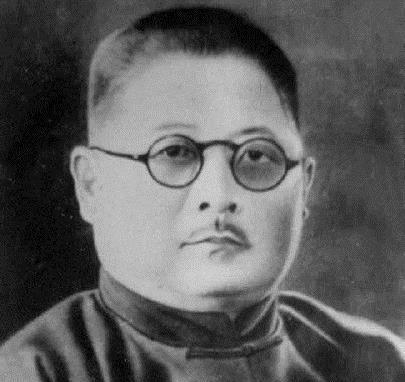As we all know, Yue Fei wrote a poem "Man Jiang Hong" that year, which was fierce and passionate, especially the sentence "Zhuangzhi is hungry for meat, laughing and talking about thirst for Xiongnu blood", which has inspired countless heroes in future generations.
In the Republic of China period, a famous general of the national army used this phrase and wrote: "Thirsty for the blood of the United States, hungry for food and stones." Return to the day of retribution, restore my divine state. ”
Who is so bold? Ji Hongchang is also!

Ji Hongchang was born in 1895 in Fugou County, Henan Province, and when he was a teenager, he had the world in mind and took the revival of China as his mission. Before his death, his old father left him a seven-character last word - "If you are an official, you are not allowed to get rich." Later, Ji Hongchang joined the army and rose all the way, always keeping this sentence in mind, and even specially carved it on a tea bowl, fired a truck, and gave it to the soldiers under his hands.
It was under his example that his troops became the most disciplined and combative force in the Northwest Army, known as the "Iron Army".
Later, Feng Yuxiang was defeated in the Battle of Feng-Chiang Kai-shek, and Ji Hongchang accepted Chiang Kai-shek's adaptation, but he did not have a good feeling for Chiang Kai-shek from beginning to end, especially after the September 18 Incident, witnessing Chiang Kai-shek's attitude toward the Japanese, Ji Hongchang resolutely chose to run away and wrote a poem: "Thirst for meiling blood, hunger for food and stones." Return to the day of retribution, restore my divine state. ”
Soon, Ji Hongchang was dismissed from his post and sent to the United States to "conduct an industrial investigation." Of course, the name "going out to investigate" is nothing more than a disguised exile.
After arriving in the United States, Ji Hongchang soon felt the deep contempt of the foreigners for Chinese, such as luxury hotels that did not allow Chinese to stay, mailing objects to China was often harassed by post office staff, etc. What was even more infuriating was that the Japanese were very "able to eat" there and received various forms of preferential treatment.
This strong contrast is inevitably indignant, but considering the convenience of the work, the entourage advised Ji Hongchang to call himself Japanese, after all, the Japanese and Chinese look similar, which can save a lot of unnecessary trouble. But Ji Hongchang was furious and asked bluntly, "Do you think it's humiliating to be Chinese?" ”
Moreover, Ji Hongchang not only did not call himself Japanese, but also specially carved a sign hanging around his neck, which was written with big words: "I am a Chinese!" (I'm a Chinese!) )”
On January 28, 1932, the Japanese provoked the "January 28 Incident" in Shanghai, and after hearing the news, Ji Hongchang was indignant, immediately terminated his investigation in the United States, secretly returned to China, and joined the Communist Party to actively resist Japan.
Ji Hongchang contacted the Northwest Army at that time and established the "Chahar People's Anti-Japanese Allied Army", which served as the commander-in-chief of the former enemy and was active in the Zhangjiakou area, causing no small trouble for the local Japanese puppet army.
When giving lectures to the soldiers, Ji Hongchang specially wrote a poem: "There are thieves without me, and there are no thieves with me." If a thief kills me, I kill a thief. Half of the rivers and mountains, the karma has been changed color. He is a good boy who sacrifices his life to serve the country. ”
Unfortunately, in Chiang Kai-shek's view, such a "righteous act" was completely "nonsense", and was soon surrounded and blocked by the Kuomintang army, and Ji Hongchang himself was even more wanted, and finally arrested in the French Concession on November 9, 1934.
In order to remove this "nail in the flesh" as soon as possible, Song Meiling and Kong Xiangxi even went out to negotiate with the French, and eventually extradited Ji Hongchang to Beiping, and was killed on November 24, at the age of 39.
On the eve of the uprising, Ji Hongchang came to paper and pen and wrote down the famous song of righteousness - "Hate not to resist Japan and die, leave it as a shame today." The country is still broken, why should I pity this head! ”
After arriving at the execution site, the executioner took him to the execution point and asked him to kneel, and Ji Hongchang said loudly: "I died for the anti-Japanese resistance, for the revolution, I can't kneel down and be shot, and I can't fall down after death, so bring me a chair!" ”
Then he said to the executioner, "Shoot in front of me!" I want to die in a fair and just way, and I want to see with my own eyes how Chiang Kai-shek's bullets killed me! ”